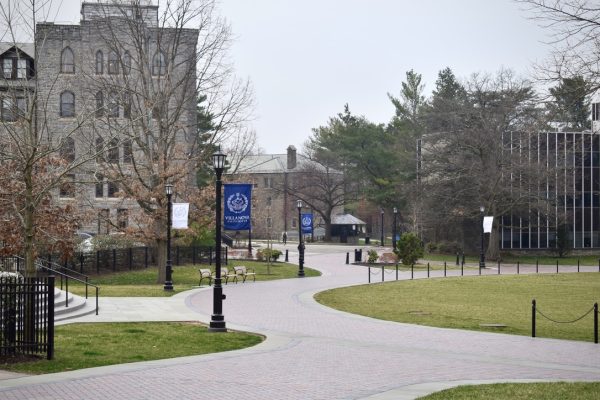Letter to the Editor: In Defense of Minella’s Main Line Diner
November 19, 2019
Last week, the Villanovan published an opinion piece entitled “Minella’s: A Local Landmark in Need of an Overhaul.” Simply put, as one of the countless Minella’s faithful on campus, I felt it my responsibility, nay, my obligation to pen this, a response to the tactless and factless shots heaved at the diner in the aforementioned article.
To start, it is worth noting that the central issues I and other Minellans may have with the attempted take-down ought not to come from a place of taste-superiority. This is to say that, while neighborhood diners have had a spot at the table of Northeastern America’s cuisine for nearly a century now, not having a preference for pancakes, cheeseburgers or French onion soup (staples delivered with consistency and quality at diners such as Minella’s) isn’t at the heart of the flaws of last week’s article.
Instead, the biggest bones Villanovans ought to pick with this hot-takey article is the (1) arbitrariness by which the author levels critiques of the restaurant’s accessibility, and (2) how the author twists said accessibility into nothing more than a “trap [for] impressionable teens.” If Minella’s does get its kicks by “[preying] on inebriated adolescents” per the author’s point of view, I would like to inquire as to what he/she thinks, then, of other near-campus sinister, conniving late-night eateries. A 2:30 a.m. cheesesteak at Minella’s costs $8.50. At Winger’s, it costs $8.45, and at Campus Corner, it costs $8.99. Should we be expecting further articles calling for the avoidance of these establishments as well, consequences for the intolerable crime of serving intoxicated students food at prices nothing short of unjustifiable?
But the baseless claim that the diner exists as nothing more than a bait-and-switch for both late-night-snackers and nostalgia-seekers should be regarded as more than just inaccurate. In communicating to readers that eating at Minella’s during normal business hours “demonstrates a preposterous error in judgment,” one actively overlooks the role a community institution like the neighborhood diner plays in the world that surrounds it.
One overlooks the diner existing — at any hour of any day — as a refuge for milkshake-sharing first dates, for burnt-out night-shift workers to enjoy a cup of coffee, for quiet Sunday morning family breakfasts after mass, for local high school students to bask in the glow of a win on the football field or as prom queen.
Minella’s does not ask you to be more than what you are, as long as you are ready to accept it for what it is, chrome accents and all, a shining proletariat light for the common man nestled defiantly among bourgeoise Lancaster Avenue staples a la White Dog Café. Perhaps, in this way, the author is right when he/she declares that a common response to criticism of the diner is, simply, “Minella’s is Minella’s.” Minella’s is Minella’s. And we shouldn’t want it any other way.







